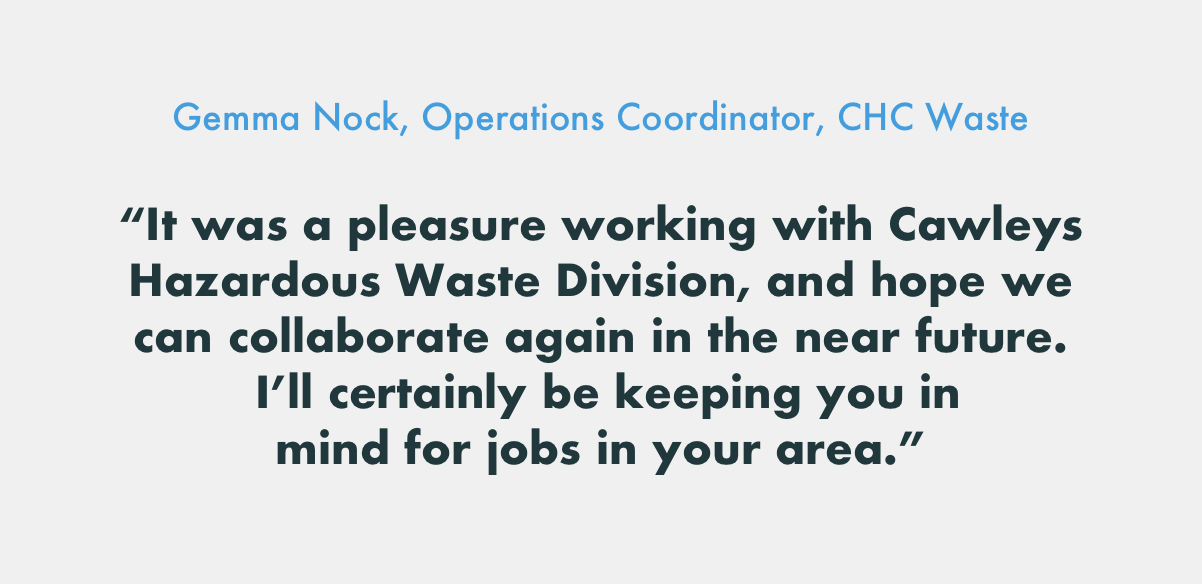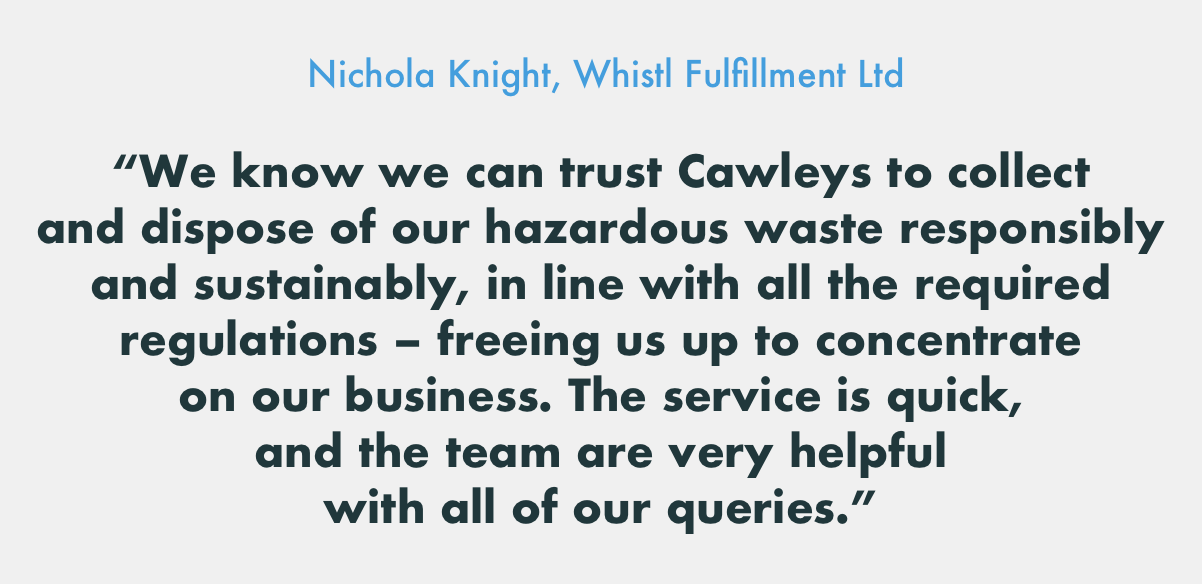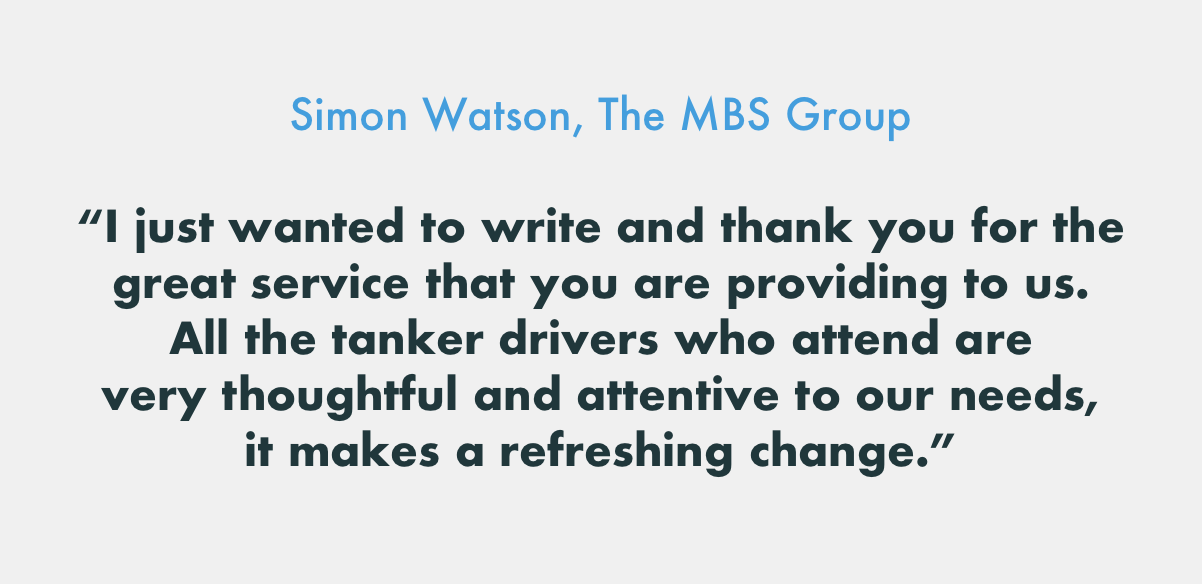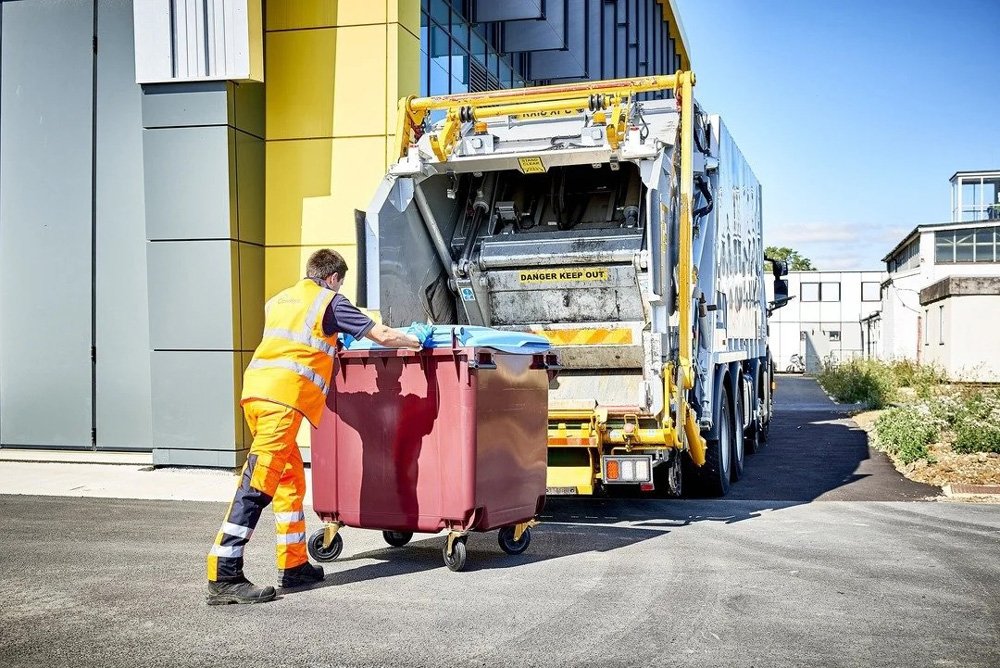
Hazardous Waste FAQs
1. What is classed as hazardous waste?
Hazardous waste is harmful when it contains properties that make it damaging to our health or the environment. Hazardous waste can be in solid, liquid, sludge and gas forms. Almost every business produces hazardous waste, from electrical items and batteries to oils and chemicals, this waste must be disposed of safely using an authorised waste collection company.
2. What regulations do I need to comply with as a business?
The Hazardous Waste Regulations (2005) set out the regime for the control and tracking of hazardous waste in England and Wales. These regulations state that:
Businesses must appropriately manage the storage, transport and disposal of hazardous waste to reduce the risks.
Hazardous waste must be segregated from non-hazardous waste and must not be mixed.
The transfer of hazardous waste must be covered by a consignment note and records kept for three years.
3. How is hazardous waste disposed of?
Hazardous waste cannot be disposed of in the same way as non-hazardous waste. Only authorised businesses can deal with these types of waste.
Before disposal, businesses must store and handle the waste correctly, and have an authorised waste management company collect it. The business must ensure they separate their waste and complete a consignment note.
When we collect the hazardous waste, we will complete the relevant paperwork and then follow the correct procedures to dispose of your waste in an approved facility.
4. Why should hazardous waste be disposed of differently?
If hazardous waste is not disposed of safely and correctly, it can result in the following:
Pollution which can cause ill health, environmental damage and biodiversity loss.
Fires and explosions which can cause structural damage, toxic fume production and pollution.
Contact with hazardous substances can cause minor ailments, severe health issues and even death.
Water supply contamination.
Issues during disposal, especially if mixed with non-hazardous waste.
Damage to a company’s reputation, especially if an incident is widely reported in the media.
Enforcement action, resulting in prosecution, fines and even imprisonment, as it is against the law.
Claims for compensation if people fall ill or someone’s land or property is damaged.
Costs can be incurred from fines, compensation claims, increased insurance premiums, clean-up operations or loss of business.
5. How should I store hazardous waste?
Hazardous waste needs to be always kept in a secure container which is appropriate for the particular waste type. As part of our waste management solution, we will advise and supply the correct storage for your hazardous waste.
6. Do you supply the containers for my waste?
We will provide you with the suitable containers for collection, transportation and disposal of your hazardous waste.
7. How long can I keep hazardous waste on my premises?
It is good practice to arrange regular collections for any hazardous waste stored on your premises and we can work with you to plan a collection schedule that suits you.
8. What paperwork do I need for my hazardous waste collection?
As part of the hazardous waste regulations, a correctly completed consignment note is required. We will work with you to ensure the relevant paperwork is completed.
9. What is a DGSA?
A Dangerous Goods Safety Advisor (DGSA) is responsible for helping to prevent the risks inherent in the carriage of dangerous goods, specifically the risk to people, property and the environment. Ensuring your compliance, our in house DGSA provides technical expertise and guidance to all customers.
GET A QUOTE







